The heart and soul of Camerata’s work are to be found here. We offer many extraordinary musical programs, spanning centuries, continents, and different stylistic periods. A number of them, in recorded form, have won international prizes and honors, including the Grand Prix du Disque, the Edison Prize, and the American Critics’ Circle Award.
We'll Be There!
American Spirituals, Black and White, 1800-1900
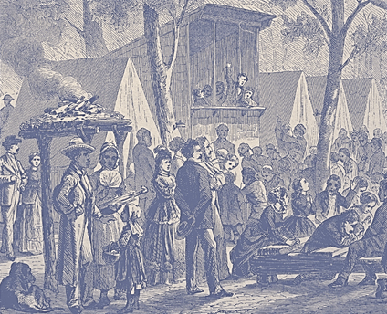 "“[We'll Be There] was beautiful and vibrant to hear.. exciting and revealing." - New York Classical Review, 2022
"“[We'll Be There] was beautiful and vibrant to hear.. exciting and revealing." - New York Classical Review, 2022
The Camerata continues its trailblazing exploration of the American spiritual tradition, with folk hymns derived from English and Celtic folklore, African-derived call-and-shout group songs, links in the Black tradition to the experience of slavery, reminiscences of the Civil War, and shared celebrations of striving, freedom, and salvation.
Les Miracles de Notre Dame

Medieval Paris was not only a center of learning, debate, art, and architecture: it was also a capital of musical creation and innovation, the most important in Europe. You will hear the magnificent vocal music sung within the walls of the great cathedral, as well as miracle tales, student songs, and minstrel turns performed in Notre Dame’s shadow, on either bank of the steadily flowing Seine. A feast!
Hear a preview clip here.
Dido & Aeneas

Catch live and in-person Camerata’s new and staged production of Purcell's only true opera. Artistic Director Anne Azéma leads a stellar cast, with Tahanee Aluwihare as Dido, Luke Scott as Aeneas, Camila Parias as Dido's sister Belinda, and Jordan Weatherston Pitts as the Sorcerer, with Peter Torpey’s evocative lighting and media elements.
Virtual Pre-Concert Talk: Prof. Ellen T. Harris, MIT
Celestial Visions of Medieval Britain
 This program will explore the connection between earthly and celestial forces as expressed in some distinct, compelling visions. Wind player and composer Mara Winter will lead Camerata through musings on humankind’s relationship to the universe, the mystery of creation, and the magic of the natural world, sung in all three of medieval Britain’s literary languages: Latin, English and French.
The essential role of instruments in the musical fabric of medieval Britain will also featured, with originally composed instrumental monophony performed in the high medieval style, blending playfully from traditional forms of instrumental music that survive today in the British Isles.“We will travel in an arc through each of these visions and allegory to contemplate the role which the natural world plays in representing the celestial spheres at play on Earth, the moving and unmoving spheres of the cosmos” says Mara.
An exciting chance to see the wonderful work of our close team under a new guest leadership!
This program will explore the connection between earthly and celestial forces as expressed in some distinct, compelling visions. Wind player and composer Mara Winter will lead Camerata through musings on humankind’s relationship to the universe, the mystery of creation, and the magic of the natural world, sung in all three of medieval Britain’s literary languages: Latin, English and French.
The essential role of instruments in the musical fabric of medieval Britain will also featured, with originally composed instrumental monophony performed in the high medieval style, blending playfully from traditional forms of instrumental music that survive today in the British Isles.“We will travel in an arc through each of these visions and allegory to contemplate the role which the natural world plays in representing the celestial spheres at play on Earth, the moving and unmoving spheres of the cosmos” says Mara.
An exciting chance to see the wonderful work of our close team under a new guest leadership!
Lands of Pure Delight:
70 Seasons of Music Making with The Boston Camerata
 Camerata, born at the Museum of Fine Arts in 1954, joins again with our mother institution to celebrate a milestone anniversary. Our superb singers and instrumentalists will re-create some of those first, pioneering Museum performances, echo in live music some of the visual treasures of the Museum collections, and showcase some of our present-day adventures in sound.
Camerata, born at the Museum of Fine Arts in 1954, joins again with our mother institution to celebrate a milestone anniversary. Our superb singers and instrumentalists will re-create some of those first, pioneering Museum performances, echo in live music some of the visual treasures of the Museum collections, and showcase some of our present-day adventures in sound.
A Gallery of Kings:
Uses and Abuses of Power ca 1300
 Songs and stories of powerful Kings, both good and bad, abound in the Middle Ages. “May he reign forever!” sings the crowd, but the monarch's power is limited: by his fallible judgement, his formidable adversaries, his love of power, and his own, precarious mortality. These ancient songs, in Latin, German, Galician, Old English, and French, of kingship and its snares resonate strongly down the centuries, into our own, turbulent time.
Songs and stories of powerful Kings, both good and bad, abound in the Middle Ages. “May he reign forever!” sings the crowd, but the monarch's power is limited: by his fallible judgement, his formidable adversaries, his love of power, and his own, precarious mortality. These ancient songs, in Latin, German, Galician, Old English, and French, of kingship and its snares resonate strongly down the centuries, into our own, turbulent time.
Preview our upcoming program at the 2025 Boston Early Music Festival with this Spotify playlist!
A German Christmas:
In Dulci Jubilo
 In the European North, the forests are deep; the nights are dark and long. Perhaps this is why, in reaction, the early Christmas music of the German-speaking peoples is so intensely joyful and profoundly rich. Our program explores the marvelous music of German Christmas festivity through chants and chorales, simple carols, grandiose polyphony, and instrumental fantasias of the 15th to early 17th centuries.
In the European North, the forests are deep; the nights are dark and long. Perhaps this is why, in reaction, the early Christmas music of the German-speaking peoples is so intensely joyful and profoundly rich. Our program explores the marvelous music of German Christmas festivity through chants and chorales, simple carols, grandiose polyphony, and instrumental fantasias of the 15th to early 17th centuries.
This program has a run time of 2 hours with a brief intermission.
Trav'ling Home:
American Spirituals, 1770-1870
 The Boston Camerata's pioneering programs of early American music have brought pleasure to thousands of music lovers, and have helped to clarify and define our country's rich and diverse cultural identity. It traces migratory currents and flows of early American song, largely spiritual but also secular. Among the various communities participating in this rich American mosaic we encounter the Puritans of New England, the Shakers and their visionary monodies, Amish and Mennonites of Pennsylvania, and the newly-freed African-American religious communities. The musical sources of this program are drawn from European and New World oral traditions, hymns, psalms and chants in English, German dialects, early songbooks of Black churches, as well as gems from the still largely unpublished Shaker manuscript archive at Sabbathday Lake, ME.
The Boston Camerata's pioneering programs of early American music have brought pleasure to thousands of music lovers, and have helped to clarify and define our country's rich and diverse cultural identity. It traces migratory currents and flows of early American song, largely spiritual but also secular. Among the various communities participating in this rich American mosaic we encounter the Puritans of New England, the Shakers and their visionary monodies, Amish and Mennonites of Pennsylvania, and the newly-freed African-American religious communities. The musical sources of this program are drawn from European and New World oral traditions, hymns, psalms and chants in English, German dialects, early songbooks of Black churches, as well as gems from the still largely unpublished Shaker manuscript archive at Sabbathday Lake, ME.
Borrowed Light
 In collaboration with the Tero Saarinen Company (TSC), Borrowed Light captures the ritualistic essence of dance and the profound strength of community. Inspired by the radical Shakers movement of the 1700s and 1800s, the work explores total surrender and devotion to a community. The live performance of original Shaker hymns by The Boston Camerata fills the space with ethereal harmonies that echo through the repetitive rituals of the movement. Collective identity can carry towards something greater, but at what point do its rigid values push the individual to the very limits of their devotion?
In collaboration with the Tero Saarinen Company (TSC), Borrowed Light captures the ritualistic essence of dance and the profound strength of community. Inspired by the radical Shakers movement of the 1700s and 1800s, the work explores total surrender and devotion to a community. The live performance of original Shaker hymns by The Boston Camerata fills the space with ethereal harmonies that echo through the repetitive rituals of the movement. Collective identity can carry towards something greater, but at what point do its rigid values push the individual to the very limits of their devotion?
This TSC classic returns to the stage 20 years after its premiere!
Sing We Noel:
Christmas Music from England and Early America
 A much-loved Camerata holiday program returns two generations later! We celebrate Christmas in the English speaking world down through the centuries, with wonderful songs and carols from the Middle Ages to the Renaissance to early America. While most music presented here is
A much-loved Camerata holiday program returns two generations later! We celebrate Christmas in the English speaking world down through the centuries, with wonderful songs and carols from the Middle Ages to the Renaissance to early America. While most music presented here is artmusic -- transcribed from old manuscripts and prints -- the means of expression are generally direct and simple, with a strong folk and popular vein. Camerata's top soloists, voices and instruments, offer a unique experience at year's end.
Get into the holiday spirit with "Edi be the hevene quene"!
The Midnight Cry:
An American Christmas (2025)
 Full of joy and delightful discovery, this holiday program revisits Camerata's most popular Christmas offering. It features songs, hymns, New England anthems, and carols from the early years of the American republic. Drawn from a wide range of early tune books and manuscripts, this magnificent Christmas repertoire, our very own, is performed by an ensemble of superb vocal soloists and instrumentalists, under the direction of Anne Azéma.
Full of joy and delightful discovery, this holiday program revisits Camerata's most popular Christmas offering. It features songs, hymns, New England anthems, and carols from the early years of the American republic. Drawn from a wide range of early tune books and manuscripts, this magnificent Christmas repertoire, our very own, is performed by an ensemble of superb vocal soloists and instrumentalists, under the direction of Anne Azéma.
Sneak a preview of this program with Camerata's performance of "Boston" by William Billings (1746-1800) on Vimeo.
Farewell Unkind:
Songs and Dances of John Dowland (1563-1626)
 To celebrate the anniversary of John Dowland, lutenist to Queen Elizabeth the First and the greatest English song writer until Purcell and Britten, we present a program of airs, dances, hymns andfantaisies, for voices and instruments. With British lute virtuoso Nigel North.
To celebrate the anniversary of John Dowland, lutenist to Queen Elizabeth the First and the greatest English song writer until Purcell and Britten, we present a program of airs, dances, hymns andfantaisies, for voices and instruments. With British lute virtuoso Nigel North.
Preview the music for this program by listening to our album Farewell, Unkind: Songs & Dances of Dowland on Spotify.
A Medieval Christmas:
Hodie Christus Natus Est
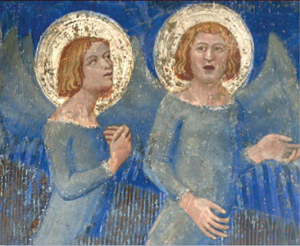 Experience our recent Harmonia Mundi CD release live and in-person! Transcendent Christmas music, featuring a superb all-female ensemble of voices and instruments.
The sounds of Christmas spirituality from Medieval France, Italy, England, and Provence, including music of the church and songs of private devotion around the joyous theme of the Nativity. Included are songs to the Virgin Mary, processionals from Saint Martial of Limoges, hymns, lyrics, and miracle ballads sung in Latin, Old French, Old Provençal, and Saxon, interlaced with Medieval English texts of the Nativity.
Experience our recent Harmonia Mundi CD release live and in-person! Transcendent Christmas music, featuring a superb all-female ensemble of voices and instruments.
The sounds of Christmas spirituality from Medieval France, Italy, England, and Provence, including music of the church and songs of private devotion around the joyous theme of the Nativity. Included are songs to the Virgin Mary, processionals from Saint Martial of Limoges, hymns, lyrics, and miracle ballads sung in Latin, Old French, Old Provençal, and Saxon, interlaced with Medieval English texts of the Nativity.
Douce Dame Jolie:
Guillaume de Machaut's Last Affair
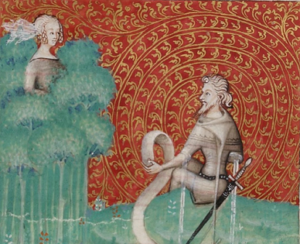 About two years before he composed his famous Mass, the aging master and churchman Guillaume de Machaut fell in love with the too-young noblewoman Péronne d'Armentière, poetess, dancer, and musician, and an unconditional admirer of the older genius and his works. Their bittersweet story, told in the words of both Machaut and Péronne, and sung to the accompaniment of harps, lutes, and vielles, comprises some of the most beautiful and touching love music of the late Middle Ages, including many songs composed and dedicated by the two lovers to each other in the course of their impossible affair.
About two years before he composed his famous Mass, the aging master and churchman Guillaume de Machaut fell in love with the too-young noblewoman Péronne d'Armentière, poetess, dancer, and musician, and an unconditional admirer of the older genius and his works. Their bittersweet story, told in the words of both Machaut and Péronne, and sung to the accompaniment of harps, lutes, and vielles, comprises some of the most beautiful and touching love music of the late Middle Ages, including many songs composed and dedicated by the two lovers to each other in the course of their impossible affair. Daniel:
A Medieval Masterpiece Revisited
 The fiery prophecies of Daniel, young captive in corrupt Babylon, ring forth again. This stunning, contemporary new production by Anne Azéma of the greatest musical play from the French Middle Ages involves lights, movement, urgent poetry, and a sterling cast including seasoned professionals, children, and Longy School of Music of Bard College students, to make 1310 happen again, in 2025. Our singers and musicians are supported by Peter Torpey's deeply evocative lighting and special effects.
The fiery prophecies of Daniel, young captive in corrupt Babylon, ring forth again. This stunning, contemporary new production by Anne Azéma of the greatest musical play from the French Middle Ages involves lights, movement, urgent poetry, and a sterling cast including seasoned professionals, children, and Longy School of Music of Bard College students, to make 1310 happen again, in 2025. Our singers and musicians are supported by Peter Torpey's deeply evocative lighting and special effects.
Dido & Aeneas:
An Opera for Distanced Lovers
 This new production of Purcell's only true opera features live performance and media elements conceived by Peter Torpey, all stitched together to be viewed from the safety and comfort of your home.
This new production of Purcell's only true opera features live performance and media elements conceived by Peter Torpey, all stitched together to be viewed from the safety and comfort of your home.
Artistic Director Anne Azéma leads a stellar cast, with Tahanee Aluwihare as Dido, Luke Scott as Aeneas, Camila Parias as Dido's sister Belinda, and Jordan Weatherston Pitts as the Sorcerer, assisted by students from Longy School of Music of Bard College.
Free America!
Early Songs of Resistance and Rebellion (1790-1860)
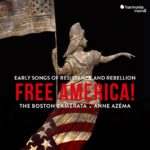 This program explores, during a time when American ideals are undergoing such deep challenges, the vital and life-affirming sounds of the young Republic as its citizens sang and played forth their love of freedom and their rejection of tyranny. The rough-hewn sounds of citizen-composers, such as the Boston tanner Billings or the Vermont tavern-keeper Ingalls, still ring true and strong today. And Liberty’s early attendants -- feminists, abolitionists, freed slaves, Boston rascals and the insolent scallywags of "Yankee Doodle" all remind us that in our musical roots lies our true strength. Exhilarating part songs, marches, anthems, jigs, and ballads from early prints and manuscript sources in a program first commissioned by the Paris Philharmonie and first performed there last fall 2018 and now the subject of a new Harmonia Mundi CD.
This program explores, during a time when American ideals are undergoing such deep challenges, the vital and life-affirming sounds of the young Republic as its citizens sang and played forth their love of freedom and their rejection of tyranny. The rough-hewn sounds of citizen-composers, such as the Boston tanner Billings or the Vermont tavern-keeper Ingalls, still ring true and strong today. And Liberty’s early attendants -- feminists, abolitionists, freed slaves, Boston rascals and the insolent scallywags of "Yankee Doodle" all remind us that in our musical roots lies our true strength. Exhilarating part songs, marches, anthems, jigs, and ballads from early prints and manuscript sources in a program first commissioned by the Paris Philharmonie and first performed there last fall 2018 and now the subject of a new Harmonia Mundi CD. Carmina Burana
 Drawing on the original 13th-century manuscript, The Boston Camerata’s Carmina Burana presents a panoramic portrait of student and clerical life in medieval Europe: paeans to the Goddess Fortune, funny and ferocious critiques of Church and State, earnest meditations on truth and righteousness, and a generous serving of songs about drinking, gambling and amorous adventure. With its usual verve and vivacity, the Camerata gives a deepened, in turn exuberant and contemplative reading of this manuscript, under the direction of vocalist Anne Azéma.
Drawing on the original 13th-century manuscript, The Boston Camerata’s Carmina Burana presents a panoramic portrait of student and clerical life in medieval Europe: paeans to the Goddess Fortune, funny and ferocious critiques of Church and State, earnest meditations on truth and righteousness, and a generous serving of songs about drinking, gambling and amorous adventure. With its usual verve and vivacity, the Camerata gives a deepened, in turn exuberant and contemplative reading of this manuscript, under the direction of vocalist Anne Azéma. The Tale of Fauvel:
A Political Fable from Medieval France
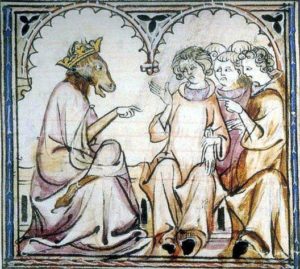 See and hear the orange creature gallop towards NowhereLand! The malevolent animal Fauvel is the protagonist of this acerbic and witty fable satirizing religious and political life in the fourteenth century and laden with implications for our own time and place. Watch Fauvel woo the Goddess Fortune, and resist his attempt to take over fair France! Our semi-staged production offers a generous selection of music, text, and visual stimulation from one of the most famous of all medieval manuscripts.
See and hear the orange creature gallop towards NowhereLand! The malevolent animal Fauvel is the protagonist of this acerbic and witty fable satirizing religious and political life in the fourteenth century and laden with implications for our own time and place. Watch Fauvel woo the Goddess Fortune, and resist his attempt to take over fair France! Our semi-staged production offers a generous selection of music, text, and visual stimulation from one of the most famous of all medieval manuscripts. La Estrella:
A Hispanic Christmas
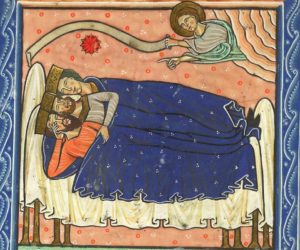
This exuberant, vivacious program celebrates Christmas with music from the Spanish speaking parts of the globe: Renaissance Iberia, and the Hispanic settlements of the New World. Encounters among indigenous Americans, the Spaniards, and West Africans produced some extraordinary musical results — unusual vocal colors, soulful melodies, and irresistible rhythms, sustained in our production by winds, keyboard, gamba, baroque guitar, and Iberian harp. The exceptional singers and instrumentalists of the Camerata are joined by local choirs, including the marvelous Fleurs des Caraïbes.
Treasures of Devotion:
Spiritual Song in Northern Europe 1500-1540
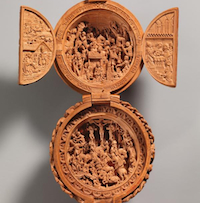
Music of personal devotion in the early Renaissance reflects the spirituality of homes and small chapels in an age of intense religious renewal. Prayers, songs, and chants accompany music for the Virgin, meditations on the cross, and astonishing reworkings of the day's popular melodies set to sacred texts.
Anne Azéma, voice, hurdy gurdy
Michael Barrett, voice, lute
Daniel Hershey, voice
Joel Frederiksen, voice, lute
Andrew Arceci, viola da gamba
Shira Kammen, vielle, harp
Carol Lewis, viola da gamba
The Night's Tale:
A Tournament of Love
 Le Tournoi de Chauvency, written circa 1285 by the French poet Jacques Bretel, is a narration of a courtly celebration in the Lorraine region of France, and the inspiration for “The Night’s Tale”. Our performance evokes a day’s festivities at the chateau of Chauvency. Daylight is the domain of men, who joust and fight in ritual encounters; when night falls, women converse in music and dance, far from the masculine violence of the daytime. Mutual desire aroused during the day culminates in the evening’s rites -- aggressive and courtly, passionate and playful.
Le Tournoi de Chauvency, written circa 1285 by the French poet Jacques Bretel, is a narration of a courtly celebration in the Lorraine region of France, and the inspiration for “The Night’s Tale”. Our performance evokes a day’s festivities at the chateau of Chauvency. Daylight is the domain of men, who joust and fight in ritual encounters; when night falls, women converse in music and dance, far from the masculine violence of the daytime. Mutual desire aroused during the day culminates in the evening’s rites -- aggressive and courtly, passionate and playful. A Mediterranean Christmas
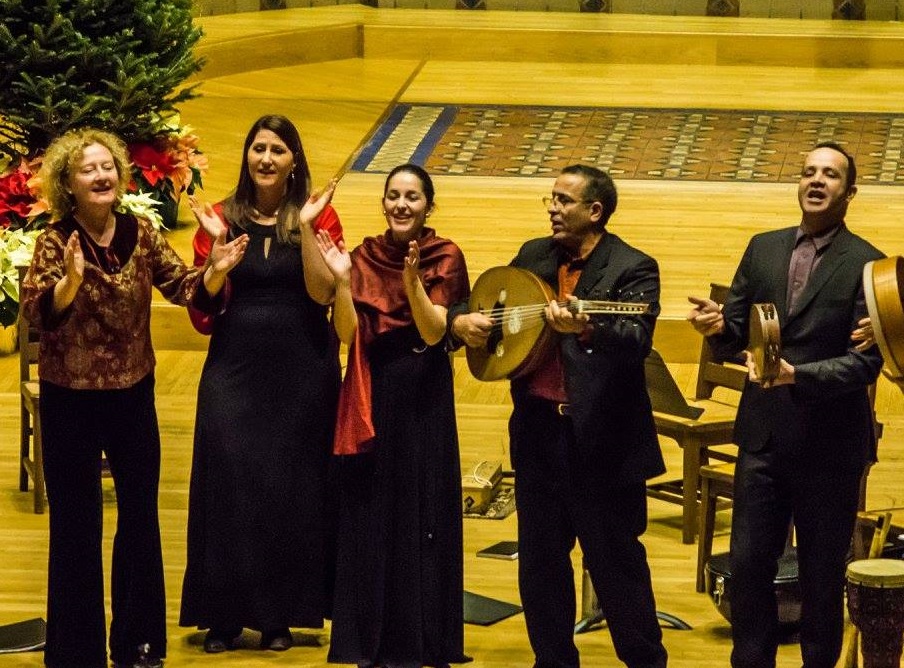 The Christmas narrative retold using songs, chants, and instrumental pieces from the countries of the Mediterranean basin: Spain, Italy, and southern France, as well as north Africa and the Holy Land. Works are drawn from medieval manuscripts and more recent, though still archaic, folklore and oral traditions. With voices, early instruments of Europe and the Middle East, and readings of the Christmas story. We are joined by SHARQ Arabic Ensemble.
The Christmas narrative retold using songs, chants, and instrumental pieces from the countries of the Mediterranean basin: Spain, Italy, and southern France, as well as north Africa and the Holy Land. Works are drawn from medieval manuscripts and more recent, though still archaic, folklore and oral traditions. With voices, early instruments of Europe and the Middle East, and readings of the Christmas story. We are joined by SHARQ Arabic Ensemble. An American Christmas
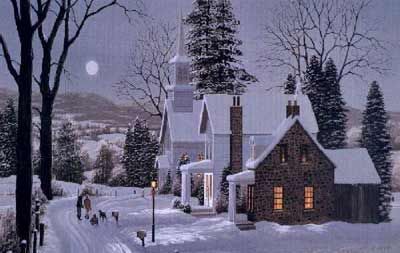
From the early years of the American republic, and from a wide range of early tune books and manuscripts, a generous selection of carols, New England anthems, Southern folk hymns and religious ballads for the season.
Carols at Midnight:
French Christmas Music 1550-1700
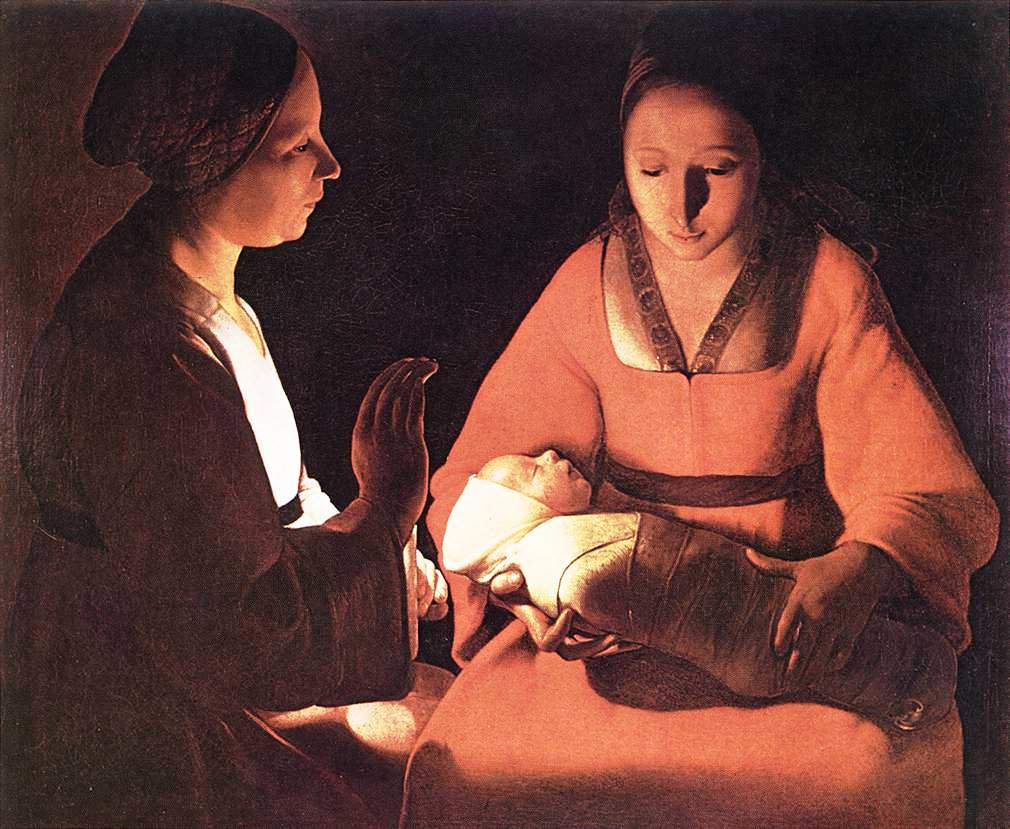 A cornucopia of French Christmas music for voices, viols, harp and organ. Serene liturgies from the Burgundian court mingle with late Renaissance and early Baroque carols and dances. A candlelit performance of Charpentier's beloved Messe de Minuit is the centerpiece of our evening.
A cornucopia of French Christmas music for voices, viols, harp and organ. Serene liturgies from the Burgundian court mingle with late Renaissance and early Baroque carols and dances. A candlelit performance of Charpentier's beloved Messe de Minuit is the centerpiece of our evening. The American Vocalist
Bridges to Spring:
Sacred Music of the Three Abrahamic Religions
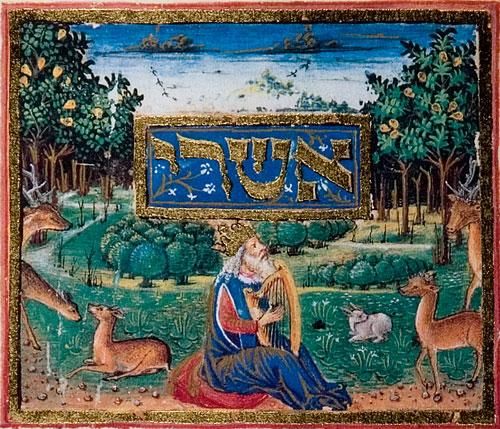
Music of renewal and hope, from Jewish, Christian and Muslim traditions, as our planet emerges from trying months. A performance plus a conversation with Anne Azéma and Joel Cohen.
City of Fools:
Medieval Songs of Rule and Misrule
 City of Fools explores age-old themes of justice and corruption as told through ancient minstrel songs. Satirical works from medieval France, Provençe, and Germany provide a sharply-etched and astonishingly contemporary perspective on our own nation’s current travails.
City of Fools explores age-old themes of justice and corruption as told through ancient minstrel songs. Satirical works from medieval France, Provençe, and Germany provide a sharply-etched and astonishingly contemporary perspective on our own nation’s current travails.
Be prepared for a surprise or two along the way!shares Camerata Artistic Director Anne Azéma. The concert will include songs of the great Provençal troubadour and satirist Peire Cardenal, as well as pungent excerpts from Carmina Burana and the Roman de Fauvel.
Want to get a sense for the music? Listen to "Rex beatus" on Spotify.
City on the Hill:
Early Hymns and Spirituals of New England
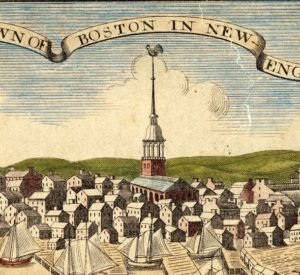 On this fascinating and inspiring concert, Camerata will perform songs by the many religious groups that came to Boston and New England, beginning with the Puritans in 1640, to the hymn and anthem-singing Congregationalists and Universalists of the eighteenth century, to the utopian Shakers of Maine and Massachusetts, whose enormous production of spirituals and dance songs reveal themselves as central to the American dream of the Shining City.
Solemn and virtuous hymn singing contrasts with the barroom ballads that became religious songs. Carefully ordered worship contrasts with inspired dancing, joyful revelation, and hope for a better world.
On this fascinating and inspiring concert, Camerata will perform songs by the many religious groups that came to Boston and New England, beginning with the Puritans in 1640, to the hymn and anthem-singing Congregationalists and Universalists of the eighteenth century, to the utopian Shakers of Maine and Massachusetts, whose enormous production of spirituals and dance songs reveal themselves as central to the American dream of the Shining City.
Solemn and virtuous hymn singing contrasts with the barroom ballads that became religious songs. Carefully ordered worship contrasts with inspired dancing, joyful revelation, and hope for a better world. Gloria!
An Italian Christmas
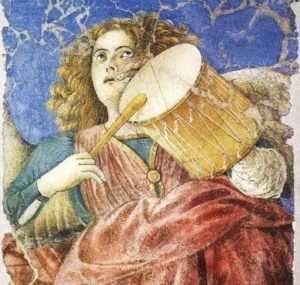 A joyful celebration of the season, with virtuoso voices and instruments performing magnificent Italian works of the Renaissance and early Baroque. Music ranging from intimate simplicity to sumptuous splendor including sacred songs of devotion, instrumental fantasias, and resplendent choral masterpieces of Venice's Golden Age. Music of Monteverdi, Gabrieli, Cipriano, Marenzio and many more performed by voices, cornetto, viola da gamba, harp, brass and organ. Not be missed!
A joyful celebration of the season, with virtuoso voices and instruments performing magnificent Italian works of the Renaissance and early Baroque. Music ranging from intimate simplicity to sumptuous splendor including sacred songs of devotion, instrumental fantasias, and resplendent choral masterpieces of Venice's Golden Age. Music of Monteverdi, Gabrieli, Cipriano, Marenzio and many more performed by voices, cornetto, viola da gamba, harp, brass and organ. Not be missed! Highlights from the Medieval Carmina Burana
In Dulci Jubilo:
A German Christmas
 In the European North, the forests are deep; the nights are dark and long. Perhaps this is why, in reaction, the early Christmas music of the German-speaking peoples is so intensely joyful, so profoundly rich. Our program explores the marvelous music of German Christmas festivity through chants and chorales, simple carols, grandiose polyphony, and instrumental fantasias of the 15th to early 17th centuries.
In the European North, the forests are deep; the nights are dark and long. Perhaps this is why, in reaction, the early Christmas music of the German-speaking peoples is so intensely joyful, so profoundly rich. Our program explores the marvelous music of German Christmas festivity through chants and chorales, simple carols, grandiose polyphony, and instrumental fantasias of the 15th to early 17th centuries. La Reina Joiosa
Liberty and Love:
A Summer Sampler
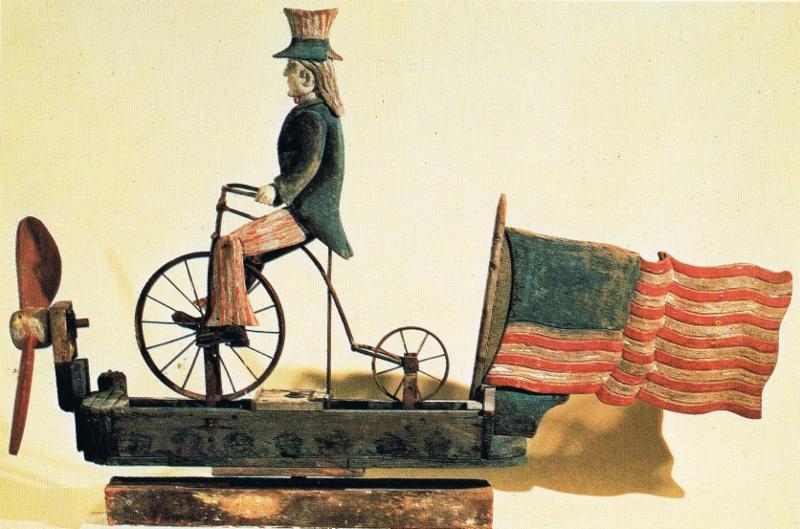 We offer a summer buffet of music for our Maine friends, plus a sneak preview of our 2017-18 season! An opening set of love songs, chants, and spirituals from medieval France is followed by a feast of home-cooked ballads, Revolutionary partsongs, and paeans to American heroes, including pieces from the earliest Maine songbooks.
We offer a summer buffet of music for our Maine friends, plus a sneak preview of our 2017-18 season! An opening set of love songs, chants, and spirituals from medieval France is followed by a feast of home-cooked ballads, Revolutionary partsongs, and paeans to American heroes, including pieces from the earliest Maine songbooks.
Michael Barrett, Lawson Daves, Daniel Hershey, Camila Parias, Deborah Rentz-Moore, voices
Joel Cohen, voice, guitar
Liberty Tree:
Early Music for the American Soul
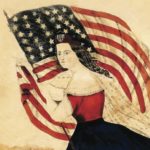 The Camerata brings the soul of the American founding generation to life through hymns, polyphonic songs, and ballads. This concert will explores the vital and life-affirming sounds of the young Republic as its citizens sang and played forth their love of freedom and their rejection of tyranny. The rough-hewn works of citizen-composers, such as Boston tanner William Billings or Vermont tavern-keeper Jeremiah Ingalls, still ring true to our contemporary ears.
The Camerata brings the soul of the American founding generation to life through hymns, polyphonic songs, and ballads. This concert will explores the vital and life-affirming sounds of the young Republic as its citizens sang and played forth their love of freedom and their rejection of tyranny. The rough-hewn works of citizen-composers, such as Boston tanner William Billings or Vermont tavern-keeper Jeremiah Ingalls, still ring true to our contemporary ears. Nueva España:
Close Encounters in the New World
Of All the Flowers:
Sacred and Secular Song of the Later Middle Ages
Patriots and Heroes:
Music of the Young Republic
Portes du Ciel (Gates of Heaven):
Spiritual Songs from Medieval France
Puer Natus Est:
A Medieval Christmas
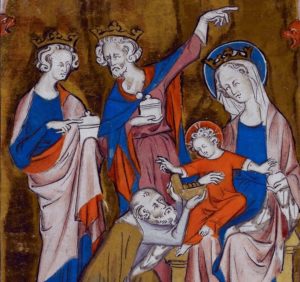 A glimpse of Christmas spirituality from Medieval France, Italy, England, and Provence, including music of the church and songs of private devotion around the joyous theme of the Nativity. Included are songs to the Virgin Mary, processionals from Saint Martial of Limoges, hymns, lyrics, and miracle ballads sung in Latin, Old French, Old Provençal, and Saxon, interlaced with Medieval English texts of the Nativity. Our cast features an extraordinary trio of women's voices with harp and vielle. Anne Azéma, Camila Parias, Deborah Rentz-Moore, voices; Christa Patton, winds, harp; Allison Monroe, vielle
A glimpse of Christmas spirituality from Medieval France, Italy, England, and Provence, including music of the church and songs of private devotion around the joyous theme of the Nativity. Included are songs to the Virgin Mary, processionals from Saint Martial of Limoges, hymns, lyrics, and miracle ballads sung in Latin, Old French, Old Provençal, and Saxon, interlaced with Medieval English texts of the Nativity. Our cast features an extraordinary trio of women's voices with harp and vielle. Anne Azéma, Camila Parias, Deborah Rentz-Moore, voices; Christa Patton, winds, harp; Allison Monroe, vielle The Sacred Bridge
Songes et Mençonges:
Medieval visions and dreams of prophecy, love and folly
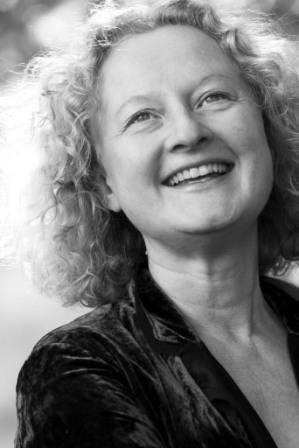 Songes et Mençonges: Dreams and Deceptions
Songes et Mençonges: Dreams and Deceptions
The Boston Camerata Anne Azéma, voice, hurdy gurdy, harp, direction Shira Kammen, vielle, harp Timothy Leigh Evans, Michael Barrett, John Taylor Ward, voice
Medieval dreams, and even madness and folly, are frequently evoked in medieval music and poetry. Listening, we enter, via the delirium and desires of love, or the intimations of social decay, into a kind of dark transcendance. But these apparitions may also point upwards, serving as prelude to some heroic action, via the nighttime visions of kings and heroes. And they may also lead to a higher spiritual plane, via exalting, mystical epiphanies.Anne Azéma, understands how to give to her songs the tragic intensity and dramatic power that are too often missing from academic recreations of medieval music.- Frankfurter Allgemeine Zeitung
Magic sensuality. It may well alter the way we look at the Middle Ages. - The Boston Globe
Songs to the Lute
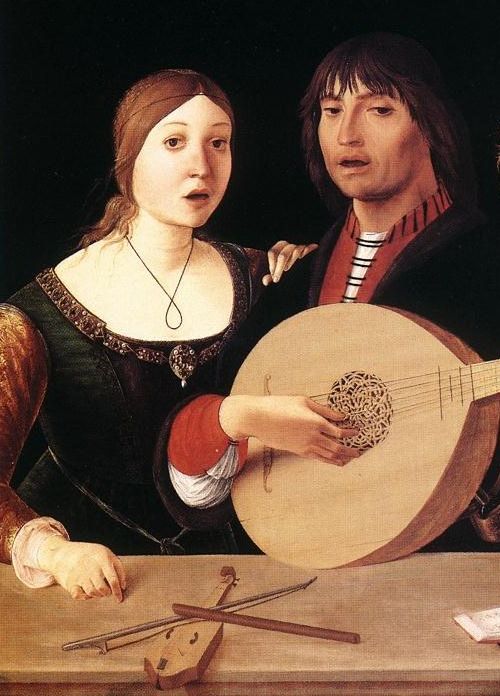
A summit meeting in Renaissance and early Baroque song as Anne Azéma (voice) and Nigel North (lutes) explore intimate and sensual French repertoires.
The Three Sisters:
Songs of Love and Passion, ca 1300
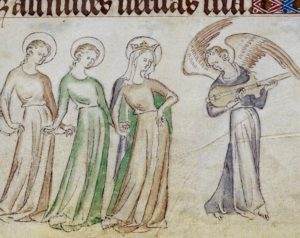
Camerata's offering to the spirit of spring: a conversation, via fabulous, age-old music and poetry, and very much from the female point of view, around the always-contemporary themes of desire, yearning, and fulfillment. These songs will be performed by a virtuoso consort of women in love (or not); Anne Azéma, joined by Camila Parias, Clare McNamara, voices, and Susanne Ansorg, vielle and guittern.
To the Distant Beloved
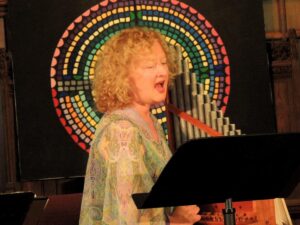
How music and poetry, across the centuries, expresses feelings of separation and reunion.
Words and music from Artistic Director Anne Azéma. The Boston Camerata's offering for International Early Music Day.
Tristan & Iseult:
A Medieval Romance in Poetry and Music
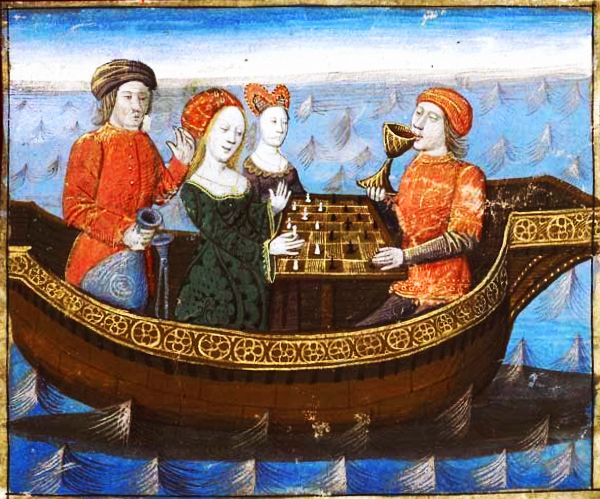
Since its creation in 1986, our retelling of the Tristan and Iseult legend using original medieval music and poetry has won numerous awards and distinctions and has toured around the globe. Now, in 2018, Anne Azéma brings this immortal lovers' tale back to life, directing an all-star cast in Joel Cohen's powerful scenario, complemented by her stunning new stage design.
Camerata's most honored production of recent seasons was originally conceived as a recording project. At the request of Erato records, intense literary and musical research took place during winter and spring 1987. The recording sessions were held in September, 1987 at the Church of the Covenant, Boston.

